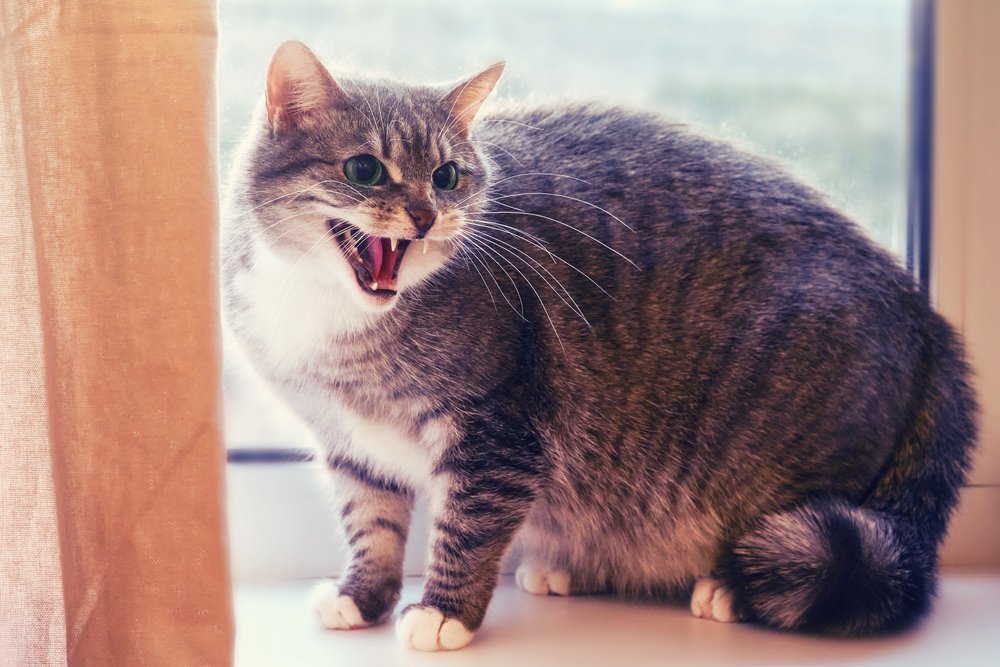Is Your Pet Anxious? Spotting and Soothing Stress in Dogs & Cats
Every pet owner wants to see their animal relaxed, healthy, and happy. But sometimes, we notice small shifts—a dog who won’t settle after you return home, or a cat who spends more time hiding under the bed than perched on their favorite windowsill. These subtle behaviors may be signs of something deeper: chronic stress or anxiety. At Village Animal Hospital in Wichita, Kansas, we offer behavioral counseling to help you understand the source of these changes and explore solutions that improve your pet’s emotional well-being.
Stress and anxiety in pets are often misunderstood or overlooked, but their impact is real. This guide will help you recognize the signs, understand why they happen, and take steps toward a calmer, more comfortable life for your pet.
What’s the Difference Between Stress and Anxiety?
Stress in pets is typically short-lived and tied to a specific trigger—like a thunderstorm or a trip to the vet. Anxiety, on the other hand, lingers. It’s a persistent state of nervousness or discomfort that may not have an obvious cause. Pets experiencing anxiety can develop both emotional and physical health problems if the condition isn’t addressed.
Understanding this distinction helps you decide whether your pet needs short-term support or a long-term care plan.
What Causes Anxiety in Pets?
The causes of anxiety vary, but they often center around changes in the pet’s world. Moving to a new home, adjusting to new family members or animals, or coping with noisy environments like fireworks or construction can be triggering. AAHA’s guide to noise aversion in pets is a helpful resource for understanding these sensitivities.
Separation anxiety is also very common, especially in dogs. Being left alone can lead to extreme stress responses. The ASPCA’s breakdown of separation anxiety explains how to recognize and address this specific issue.
Cats, while sometimes seen as more independent, also experience anxiety. Household tension—especially in multi-cat homes—can be a major source of stress. AAHA offers advice on addressing tension among cats to help promote harmony.
Medical issues, past trauma, lack of early socialization, or simply a lack of enrichment can also play a role. The AVMA’s review on puppy and kitten socialization emphasizes how early-life experiences affect behavior long-term.
Recognizing the Signs in Dogs and Cats
Anxiety can show up in unexpected ways. Dogs may bark excessively, pace, tremble, or exhibit destructive behaviors like chewing or digging. They might also develop compulsive habits, such as licking their paws or chasing their tail.
Cats are often more subtle. You might notice changes in appetite, grooming habits, or litter box use. A normally confident cat might start hiding or avoiding interactions. The ASPCA’s guide to common cat behavior issues offer helpful insight into what these changes might mean.
If your pet’s behavior seems off—even if you’re not sure why—it’s worth a conversation with your veterinarian.
What Happens at a Behavior Evaluation?
When you bring your pet to Village Animal Hospital for anxiety concerns, we’ll begin with a detailed history of recent changes and daily routines. We’ll also do a full physical exam to check for medical causes of behavior changes, such as pain or illness. Sometimes diagnostics like bloodwork or imaging help rule out underlying conditions.
Video clips of the behavior can be extremely helpful, especially if your pet is more anxious at home than in the clinic.
How We Treat Anxiety in Pets
There’s no one-size-fits-all solution for anxiety, but there are many tools we can use to help your pet feel better.
Behavioral therapy is often the cornerstone. Counter-conditioning and desensitization help your pet respond differently to triggers. For example, if your dog is afraid of the vacuum, we can gradually build positive associations with it. If your cat avoids certain areas of the house, we can explore why and rebuild comfort and confidence.
Environmental enrichment is also essential. For dogs, consider scent games, food puzzles, and other mentally stimulating activities. Guide Dogs UK provides great enrichment ideas. For cats, vertical space, window perches, scratching posts, and quiet hiding spots can reduce stress. The Indoor Pet Initiative offers a helpful guide to designing cat-friendly spaces.
If enrichment and behavioral changes aren’t enough, medications may be recommended. These are used thoughtfully and are monitored closely to ensure they’re safe and effective.
Calming aids such as pheromone diffusers, soft music, massage, and routine also play a supportive role. DIY enrichment toys are another great way to engage cats with positive stimulation.
Helping Your Pet at Home
Pets thrive with predictability. Feeding times, exercise routines, and social interaction should stay as consistent as possible. Try to limit exposure to known stressors when you can, and always give your pet a safe space to retreat to when they’re overwhelmed.
Cats in particular benefit from daily play and stimulation. This AAHA article on keeping indoor cats happy outlines enrichment ideas that are easy to implement.
If you’re dealing with tension in a multi-pet household, remember that even subtle conflict can affect behavior. Addressing inter-cat tension can improve both individual well-being and household dynamics.
Frequently Asked Questions
Can anxiety go away without treatment?
Some pets improve with routine and environmental changes, but chronic anxiety usually needs a structured treatment plan.
Is medication always necessary?
No, but for moderate to severe cases, it can make a significant difference. Your vet will discuss the risks, benefits, and alternatives.
Can enrichment replace training?
Enrichment supports training but doesn’t replace it. Think of it as part of the overall support system, especially for anxious pets.
Do pets respond to human stress?
Yes. Pets often mirror our emotions. Reducing your own stress can help create a calmer environment for your animal.

We’re Here to Help
Anxiety doesn’t mean your pet is broken—it means they need help. At Village Animal Hospital, our job is to work with you to identify what’s wrong and create a care plan that’s realistic, supportive, and tailored to your household.
If your pet is struggling, we’re here to help. Schedule an appointment to get started, and let’s work together to bring your pet relief and restore peace to your home.








Leave A Comment